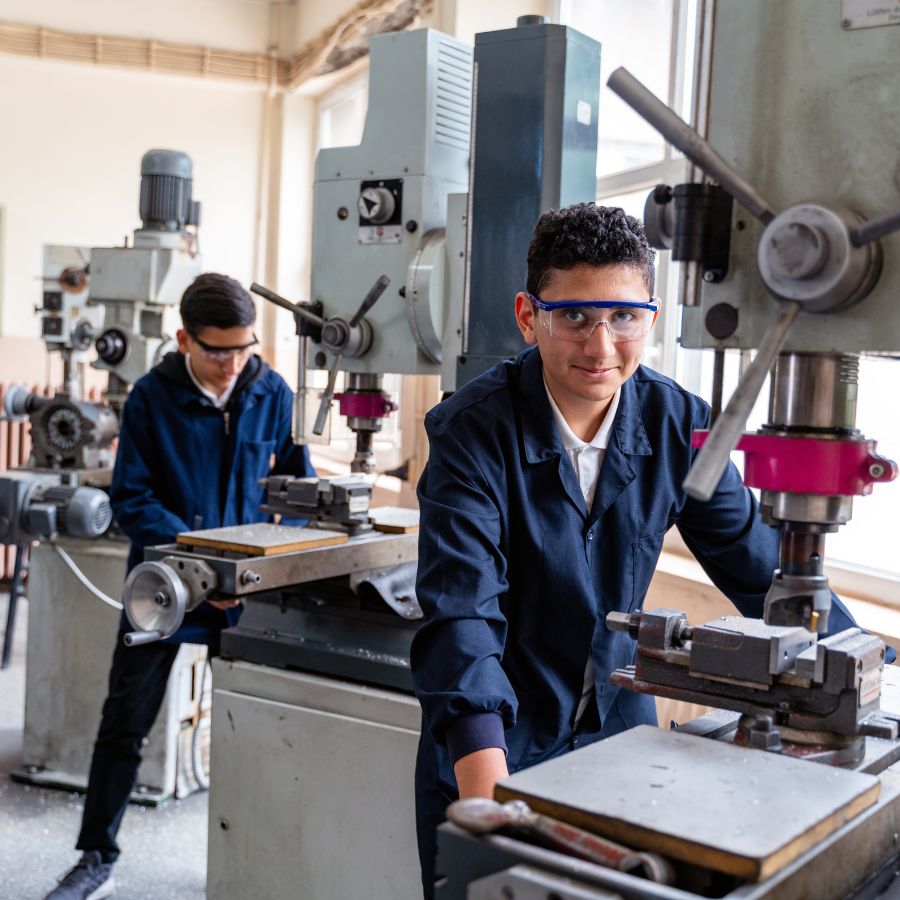Protecting young workers’ rights in the workplace
Discover important strategies to protect young workers and create a fair work environment where everyone thrives.
Young workers comprise 14% of the Australian workforce (Healthy Workplaces, 2023). With many young people entering the workplace, employers face unique challenges to make their businesses safer for young employees. In fact, young workers under the age of 25 are more likely to make serious workers’ compensation claims, making workplace safety a critical issue (Safe Work Australia, 2023).
By implementing comprehensive protection measures and creating a culture of safety and respect, employers can create a workplace that is safe for both young workers and the organisation.
By actively seeking ways to protect young workers’ rights and assure safe and fair working conditions in the workplace, employers can take genuine steps to minimise injuries and take a moral imperative rather than one motivated by legal obligations alone.
Essential strategies to protect young workers’ rights in the workplace
When it comes to young worker safety, both employers and employees have a responsibility to ensure that every employee has access to a safe workplace, and having a strong strategy in place can make a notable impact on young lives.

Comprehensive training and education
While it’s important to establish safety regulations and standards, employers need to provide training about young workers’ rights, workplace safety, and job-specific safety skills. Develop age and skill-appropriate training programs that cover everything from discrimination to harassment and proper use of equipment. Regularly update and reinforce this through ongoing training sessions. You can also encourage open communication and create safer workplaces where young workers can voice their concerns and ask questions without fear of judgement.

Implement fair scheduling and working hours
All employers need to adhere to legal requirements when it comes to working hours for young workers, including overtime and conditions on night work. Create flexible schedules that can accommodate any educational commitments and provide adequate periods of rest. Avoid any last-minute schedule changes to ensure that they get sufficient notice before their shifts. Implement a fair system for allocating shifts, ensuring that young workers aren’t disproportionately assigned undesirable time slots or excessively long shifts as opposed to other employees.

Ensure proper supervision and mentoring
Assigning experienced supervisors or mentors and helping young workers get the guidance they need to navigate the workplace and its standards. Identify and train mentors in effective communication and leadership skills tailored towards working with young people. Establish regular check-ins and offer constructive feedback to ensure young workers’ rights are protected. Create a space where young workers feel comfortable seeking advice and reporting issues. Implement a structured mentoring program to create professional development and career growth.

Ensure fair compensation and benefits
Pay young workers at least the minimum wage and provide any applicable penalty rates or allowances. Communicate pay rates, deductions, and payment schedules. Offer appropriate benefits like leave entitlements and superannuation outlined in the relevant employment laws. Provide opportunities and skills development with regular compensation reviews, making the necessary adjustments to ensure it remains fair. Young employees aren’t always aware of their rights and it’s up to employers and employees to educate them and themselves about fair treatment.
What Our Community Says About Us
Our Partners





Protect the rights of young workers with Youthsafe
Youthsafe is an organisation that’s committed to promoting the safety and well-being of young people in various settings, including the workplace. We offer a range of services and programs that are designed to support young workers and employers in creating a safe work environment.
From educational resources for young people to programs aimed at adult influencers like employers, we give access to evidence-based resources to help young people navigate different situations with the support they need.
FAQs
Young workers require additional safety considerations due to limited experience and physical development. This can range from conducting risk assessments to providing age-appropriate PPE and restricted access to hazardous chemicals and machinery.
There are many ways that young workers can communicate their concerns to employers, supervisors, or even mentors including, familiarising themselves with their rights and company policies, documenting issues or incidents, using designated communication channels, participating in workplace committees, and proposing solutions for improvements.


